Podcast 163: How Ron Stefanski Went From Professor to $18,000 Per Month With His Niche Website
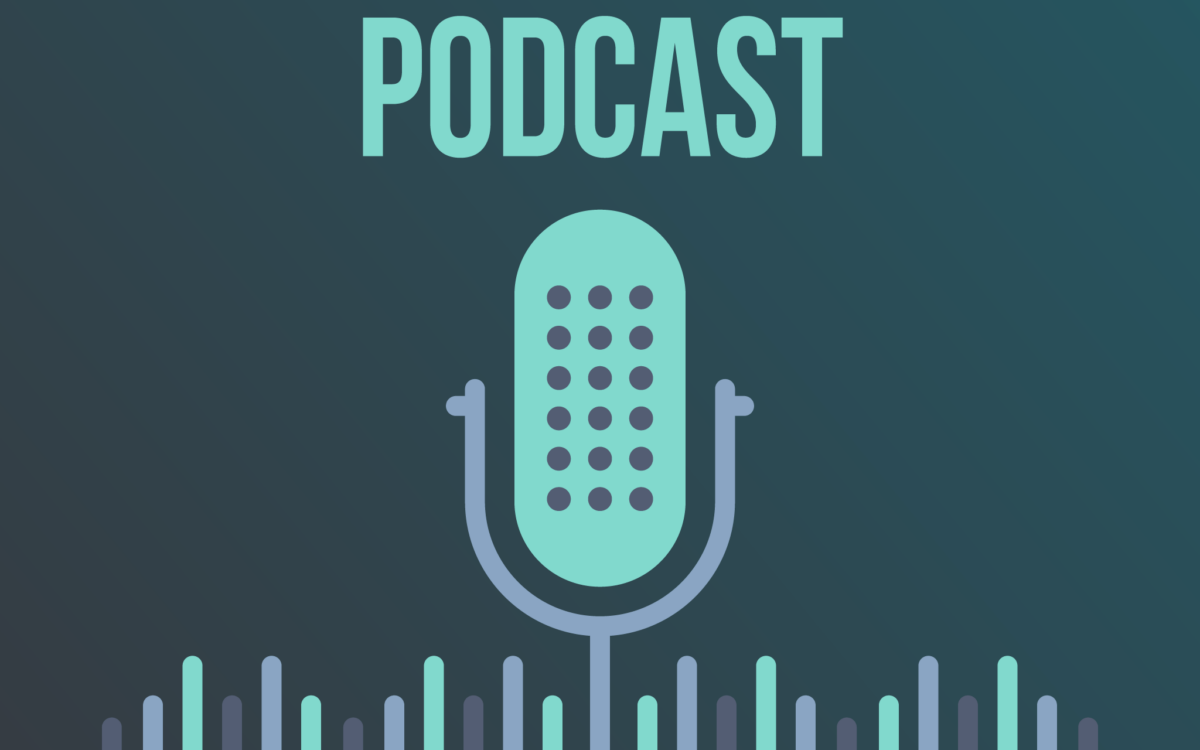
When you buy something through one of the links on our site, we may earn an affiliate commission.
Today I'm talking with Ron Stefanski from OneHourProfessor.com. Ron talks about a site that is making $18,000 a month and he shares the exact things that help the site take off.
We cover his keyword research strategies and link building strategies. Then we talk about his overall business structure, how he has a full-time virtual assistant, an editor, writers, how much content he has on his sites, and so much more.
Overall, this is an awesome story about a “normal” person who has had enormous success building niche websites. Hope you enjoy.
Mentioned On The Podcast
If you want to get in touch with Ron, check out his website at OneHourProfessor.com.
Full Transcript
Spencer: Hey everyone. . Today, I'm excited to have a guest interview. Today I'm talking with Ron Stefanski from onehourprofessor.com. Ron recently came on to nichepursuits.com and wrote a guest post, shared a success story from one of his sites, and explained everything that was working really, really well for that particular site. I wanted to have him on the podcast so that we could dive a little bit deeper and have a conversation about that site.
Ron is somebody that has worked professionally in marketing and online marketing and doing other things but is currently a professor. He actually teaches school and he's kept that job. He can explain why, but he certainly is earning a lot more from his websites now than he is as a professor. His website is onehourprofessor.com, he shares his income reports there and some other things that are working well.
What I love about what Ron shares is not only that he talks about a site that is making $18,000 a month, which is a huge sum of money for one website, but he shares the exact things that help the site take off. One of those is informational databases—again, he'll explain what that is—his keyword research strategies for answering questions, and then he dives into a couple of link building strategies that have worked well for him. Then we talk about his overall business structure, how he has a full-time virtual assistant, editor, writers, how much content he has on his sites, and so much more. You can get all the details that Ron has to share, what's working really well for a site.
I do want to say that even though Ron doesn't share the URL of the site that's making $18,000 dollars a month here on the podcast, he has shared that with me privately. I did have a chance to look at the website that's earning the money that he claims. I've been able to look at the stats with SEMrush and see his screenshots and income verification and I can tell you that it is a legit site, I can see that it's getting a ton of traffic, it does rank really, really well in Google and there's no reason to believe that anything he’s sharing is not 100% true and accurate. I just wanted to let you know that even though his site isn't shared publicly, I've been able to verify that privately and I'm comfortable having him on the interview and let you know that these strategies are working. Having said that, I hope that you are able to enjoy the interview with Ron and able to take away some great strategies that you can apply to your own websites. Thanks a lot.
Hey, Ron, welcome to the Niche Pursuits podcast.
Ron: Hey, Spencer, thanks so much for having me, it's a real pleasure, I've been following you for a long time so I really appreciate you having me on.
Spencer: Thank you for coming on the podcast and being able to share your success story here. For those listeners that may recognize your name, you just did a guest post; we published it this week. Of course, when they're listening, it’ll have been maybe a month ago or something like that and shared your story. I wanted to have you on the podcast to dive a little bit deeper into what's working well with your niche sites and building a business online. But before we dive into that, specifically, I want to get a little bit of your background so people know where you're coming from. Can you just give us an idea of your work and business experience previous to building websites?
Ron: Yeah, and if people want to see the full explanation of everything, they can jump into the blog post there. Basically, to sum it up, I was in sales, I became an internet marketing coordinator at a small company—it was a supplement company—and I was basically working there to learn internet marketing, I should say when I was in sales, I actually got laid off in sales and then, I basically putzed around with a website and everything. It was essentially a failure, but it got me interested in it.
Then, I went to the supplement company. I worked there for a little bit. Then. I went to an agency, worked at just various marketing positions. Eventually, I ended up being a corporate level digital marketing manager which was, from a career standpoint, pretty high, I guess. I could have been a director of marketing and then the CMO. It was two steps away from that. For the most part I was there, it was going fine. The pay was good, co-workers were fine, I didn't love the job, but I could stand the job, but I got pretty tired of it and had been putzing around on websites on the side.
Basically, when I was working at one of the jobs, I just really wanted to start one of these websites that I essentially wouldn't give up on. I tried and I know you did this in the past where you did little niche websites where was it’s like 10, 15, 20 pages. I did a few of those, had quite a few failures, and I was like, “You know what? I'm going to create what I call an authority site,” which is just basically more pages, more information. I started that and it really is the anchor of the online business now.
Now I think I have seven different total websites, I've got a team that I work with, I got one full-time VA, I've got four part-time writers, and one part-time editor. So, basically just focus on certain projects at a time, get the content thing, get it built up, hire writers if needed, pass it through the editor and things have been going pretty well for the last five years here or so.
Spencer: Awesome. We're going to dive, of course, into your websites and what's working really well. Your website is onehourprofessor.com and you are still teaching as a professor. Can you tell us how you got involved in doing that and what your day-to-day is like doing that currently?
Ron: Yeah, I completely forgot about that. I've been a college professor now for, I think it's been going on nine years or so. Basically, I got my MBA and when I got my MBA, I ended up trying to find an online adjunct position because it's work from home, the pay is decent—it's not great but it's decent—and it was one of those things where it's like, “I could probably jump into this and give it a shot,” and I've really stuck with it over the years.
I've changed to quite a few different schools. Currently, there are three different colleges that I teach at and it is all online adjunct. They've given me the opportunity to teach in person but I don't want to because I hate commuting very, very much so, that was my moment of freedom where I didn't have to commute anymore. I still teach at three different schools. For the most part, if anyone has an MBA—I'm not going to say it's easy to get into it— it's actually a pretty sweet gig, it's not very overwhelming.
Usually, day-to-day, I don't do too much quite frankly because a lot of it is all online so I basically will answer discussion boards and emails. Then the only day that sucks is Monday, that's my grading day. That's a day where it's like I still hate Mondays even though I work for myself because I got to do all the grading. That just takes time and there's a lot of work that goes into that. Mondays are basically the day that are eating up, but for the amount that I make with it and everything, it makes it worth it to spend one day a week to really, really focus on. Otherwise, other days I spend really 10-15 minutes per day or so, maybe a little longer some days, but that's pretty easy; just a side thing. When I quit my job and started my own online thing and really was struggling when I was teaching on the side to keep the money coming in, now it pays for my mortgage and I'm like, “It's nice to always have that safety net just in case.”
Spencer: Absolutely. You're still doing that and then, of course, building the sites on the side, which at this point are doing quite well. Can you share with people how well your sites overall are doing just to give people a sense of how successful they've been for you?
Ron: Yeah. One thing I will say, one of the things that I think is unique to me—this was inspired by Pat Flynn, of course. I'm sure many people have seen—I've actually done the whole income report thing since I started. I started my first one in September 2014 and I've done one every month since then. They've obviously changed and everything, but right now, this last month—this is why I can give such detailed numbers—revenue was $25,309.51, expenses were $4801.20, and the net income was just over $20,000 for the month. The website that I talk about in the blog post and what I really focused on within that, that makes about $18,000 of that. So that is definitely the lion's share of it, but the other ones are growing and it takes time to get those to grow. As of right now, I'm doing really well, and like I said, I'm totally transparent about my income, expenses, challenges, all that stuff.
Spencer: Right. Obviously, we can calculate the expenses there, you give us the revenue and the net income there, and you did mention that you've got three writers and an editor. Can you maybe just review your staff, who you're using, and your expenses there a little bit?
Ron: Yeah, with staff right now, like I said, I have one full-time virtual assistant. She is from the Philippines. She's really good, I like her a lot. She's not a superhero VA, so to speak, because I know some people talk about that where they can do everything, but she does a lot of the mundane tasks that I used to do that just take 5, 10, 15 minutes or if I need something research, she’ll do that, or if I need bulk changes on one of my websites and we can't do it programmatically, she'll handle that stuff. She does all the posting the blogs after they're added and everything. I have a whole workflow behind it. She's there, I think I pay her about $160 a week and that is full-time. She's in the Philippines so it is on the cheaper side, but she's in one of those provinces in the Philippines where it's not all that expensive either. I take care of her, I've given her raises, there have been bonuses, there have been things I've done along the way. She likes me, I think she's great. That's my full-timer.
Then I've got three part-time writers. Because I know everyone will always ask this, “Where do you get them?” Upwork is always the place where I go to get them. It's no secret there, I think everyone's heard that before. I usually go to Upwork and I'll test people out. I like to pay people by 100 words. Basically, it's by word but I always ask for a quote for by-100 words and I do that because I always give people templates, I give my writers templates and I'll say, “This is what we're thinking. This is the word count we're thinking.” But after I trust them, I say, “I want you to write as much as needed or as little as needed. I don't want you to overdo it, I don't want you to underdo it. I want you to write the amount that fully covers this topic.” I prefer by-word instead of just a fixed-rate per article, stuff like that. For me, that's been successful.
Spencer: What average rate would you say you're paying your authors then?
Ron: It's pretty crazy in the past. They got like 50 cents per 100 words. I wouldn't recommend that. The website’s actually doing okay. It wasn't great content, but it was okay. For the most part, I'm usually between $2 to $3 per 100 words, $20 to $30 for a thousand-word article, which I think is on the cheaper end.
Spencer: Yeah, I think it is.
Ron: Yeah, the reason why I think it works for me is because I'm very detail-oriented with my templates. I actually would much rather get a writer that's not very experienced that doesn't have what I call bad habits and train them into what I want. The virtual assistant I have, she didn't have a lot of the skills that she has now. I prefer to get someone at the ground level when they don't have a ton of experience, really train them up, get them into a place where it's really good.
Then I also have the editor. The editor saves me a lot because she'll go in there and make sure that the content is good, make sure the context makes sense, they're not just writing a bunch of gibberish that isn't helpful. She really focuses on that stuff. Between the two, they submit something pretty good. Then, my editor looks over it and quite frankly, there's been quite a few times when I'm not even reviewing articles. What I usually do now is I'll just spot check. I have so many websites, it's hard to read over all of them. I'll usually spot check here and there once or twice a week and just make sure everything's up on the up-and-up. Usually, it has been and then come back a few weeks later and check on it.
Spencer: Does your editor do the formatting primarily as well?
Ron: No. What we do, because the editor is more expensive than my virtual assistant. What I basically have is I have an editor. I can't even remember what I pay her an hour, I think it's like $20 an hour. It's not even crazy expensive but I think it's something like that. What happens is the writers will take it—that's all done in Google Docs—they'll write the content. I should say this, let me step back, I usually do the keyword research myself, I'm not sure if you do the same.
Spencer: I do.
Ron: Yeah, that's a vital, vital part of the whole thing. I'll do the keyword research myself, I'll put it in a spreadsheet, I'll say “Hey, writers,” I have one or two, “pick whatever topic you want this week,” or however many articles they’re writing, two, three, four, whatever, “pick however many you want and then write about it.” They'll write about it, they’ll put into a folder, and then the editor will take it from that folder just as a Microsoft Word doc or a Google Doc and she will review it, make sure all that's there.
I'm a big fan, by the way, of getting teachers, former teachers, or someone who has a major that's very focused on just writing in general punctuation, grammar, because I really want them to be sticklers about that, and then they'll basically edit it, they'll put it into a folder. Then my VA, the one who's a full-timer, she will then take it, she puts it up there, she'll choose the picture, she'll do all that.
But again, it's tough because when she first started, she couldn't do any of this and I remember, for people who are intimidated thinking, “I can't hire a full-time VA,” you don't really need to in the beginning, you can do some of this stuff yourself. What I did, this was something that I worked with her in the beginning for 10 hours a week and I was like, “Oh, we're a little bit more busy, 15 hours a week,” and then eventually, it got to the point where it was like, “Okay, you know what? I think I can actually keep you busy for 40 hours a week,” because that was my biggest thing is I've got to make sure she's busy.
Now, because I've got so many properties and everything, I've been able to do that. She'll usually take it and then she'll format it, make sure all is good, post it up. She's also very good about asking questions which I absolutely love so if there's anything ever comes up that's confusing, she'll ask. Now, it's funny because I can just create a website, throw it up, get a new writer, plug them in, and that's all I need to do.
Spencer: That's great. It sounds like a good system. To clarify, is your virtual assistant also monetizing the articles if they're focused on Amazon? Is she inserting the Amazon links or buttons, etc?
Ron: Yeah, if I have affiliate stuff going up. Right now, I don't have too much affiliate content going up, but if I do, yes. She knows how to use SiteStripe in Amazon, pull it all in, she knows all about that, she's been trained on it. One thing I will say, too—I think this would be helpful for people—that I've been really big on with every website that I have—and if someone has one website, this is way easier—is that I've had a page on my website specifically to where it could just be your website domain/training area or something like that. What I do is I actually put all the tasks in there. I don't just write down the tasks in a Word doc. I'll actually have it written down, but I'll also record a video using Screencast-O-Matic and I put that at the top. What I found is that—this is after years and years of outsourcing—some people are good with just the text but the video is very, very helpful. I think when you have the two, it's very clear.
It takes me more time to train, it's slower, but I do that. The beauty of it is in the future, if my virtual assistant were to leave tomorrow—yes, that would be very painful for me and that would suck—I do have everything documented as standard operating procedure documents on every one of my websites, all in one page. So, I can always just say, “Hey, this is where you need to go. Go do your training, and it should answer all the questions.” You just got to remember to always update it. If something comes up and it's like, “Oh, I got to do this now,” just put it in that area. Eventually, you'll be very thankful if someone drops on, which I feel is inevitable pretty much.
Spencer: Yeah, I think that's a great tip, having procedures that your current staff can look at and rely on but, like you said, if somebody new comes in, it's pretty easy for them to pick up the ball and run with it if they need to as they review those things. You do things similar to the way that I do things. One difference that I wanted to ask about is I have my authors just write directly in WordPress rather than putting everything in a Word doc and then having to move that over to WordPress, is there a reason that you have the authors write in Google Docs rather than just WordPress?
Ron: The only reason is simply that I feel like people are probably more comfortable with Microsoft Word or Google Docs because they've just been doing it for longer. The thing, too, is that when they're writing into WordPress—it depends on what you're paying them and what you're comfortable with—for me, I just want the writers to focus on one thing, writing. I don't want them to focus on formatting, I don't want them to focus on anything else, I want them to focus on writing and just focus on the content 100%.
They do their best there and then that's why my virtual assistant, and again, I have her for 40 hours a week so that's where she walks in and she can take that time to really make sure that the article is looking good, it's formatted correctly and I would rather she spend her time doing that than they do. I want them just to write and focus on that one thing and then hand it over to her. That's why I do it that way, but I think both ways would work.
I can totally understand why you would have someone do it directly in WordPress, but for me, I want to keep her busy, I want her to focus on things, and like I said, she's really detail-oriented. That's the key to that. If she ever sees anything weird or has any questions, and she's just learned so much because we've been doing this for so long now. I probably had her for maybe three years now. She's been so involved in the business for so long and she has a lot of the best practices across all the web properties that she always is doing the same thing.
Spencer: Awesome. Let's dive a little bit more into strategy now. We're going to just focus on your largest site, the one that's bringing in the most money. Can you just give us a high-level strategy that you followed up to this point?
Ron: It's really interesting and I'm not going to necessarily give away the niche or the website, so to speak, but basically, what happened was there was a situation. Someone that's in my family needed some help with something and I essentially found out that there were websites out there that were focused on this, and there definitely was. But the thing that I realized while I was doing it or while I was researching to try to help this individual was that the websites weren't very good, quite frankly. So, I looked at it and I thought, “You know what? I'm going to give this a shot and make it.” I started to make it. When I did it in the beginning, I created something. It's really not like a directory, but it's something that I call an informational database.
Let me explain. The example that I usually give is boxing gyms. If you had a website about boxing, it's all about boxing, not just the affiliate stuff but informational stuff, maybe you talk about the recent boxing matches, et cetera. One of the things that you could do—this is really how I started this website at the beginning—is finding a question that can be molded into multiple different queries in the same way. The example I usually give is let's say that people were looking for the best boxing gyms in and then city name, whatever that city name is, usually top 25 cities, top 50 cities. What I would do is I would create a page for every single one of those cities. Then, I would have a directory, maybe you have some content like a paragraph or two about each of them and get more specific about them and you actually explain what they are.
Then you would then reach out to those places and say, “Hey, just so you know, I featured you,” and then you hope basically for some type of link back. I've had some success with that where they will link back, but it's twofold because the reason why I like that is that you have the geographic indicators, which I still feel like Google tends to like quite a bit, so you have the city name. I feel you're much more prone to be shown at the top on the Google search results when you have that indicator as a page on your page title tag, so if you have best boxing gyms in Chicago, best boxing gyms in New York. This example I'm telling you right now, I know it wouldn't work because we got Yelp that we're competing with, you got Google Maps, there are a lot of different things that are competing there so it wouldn’t really work, but for me, that was basically the main thing is I focus on that.
I would also focus on query-based informational databases. That would be something like, “What gyms in city name have boxing and MMA training?” that kind of thing, answering that same question but for all 50 cities, something like that. It's a different way of doing it but it really does it in bulk and I love websites that I could do this because I can basically get a template and say, “This is a template you follow, this is what you do. The only difference is now you have to do it for this city.” So they'll go in, they'll do all the research, they'll finish it, and then we'll publish that. Then it's just another city, another city. It's always unique content.
Someone asked—I don’t remember what his name was—on the blog post. He said, “Is this programmatic?” It is not programmatic, it is purely unique written content, but for me, that has worked really well. If you can find the query-based informational database, like I said, a gym that does boxing and MMA in all those different cities, those can do really well.
I should disclose this. I'm a big fan, Spencer, if there's a query that gets 0 to 50 searches a month, I'm fine with that because I'm making 50 pages. Over time, that all adds up and—this is anecdotal—I feel like Google gives you that authority in that area and noticing, “Hey, they're really focused on this stuff.” If you keep doing that sort of thing, eventually it really adds up. There isn't one page on my website that makes a lot of money. It's not at all how it works, it's every page makes a little bit of money stuff.
Spencer: I've got a couple of follow-up questions on this informational database topic. First, if you were to guess, what percent of your traffic coming to your site is coming to those informational database pages?
Ron: On this particular website, I would say probably about 40% and I have had to do that analysis before so I can come up with roughly about 40%.
Spencer: That's a huge bulk.
Ron: It's a big amount, and again, it's small for each page, but in aggregate, it really, really does add up. I don't remember how many pages I have on this website. I can actually look if you want, but I think at this point, I have 6000–7000, maybe 8000 pages because I do a lot of those informational databases. I do city pages, I do state pages, I do a lot of geographic modifiers. On this particular website, it's worked really well. I will say I've done it on another website and I have had success as well. So, I don't think it's isolated to this particular website. It's worked for a lot of different websites.
But you have to get creative because like I said, you can have the geographic informational database where you focus on city and state, but you can also do those keyword indicator ones, like I said, the boxing with MMA gym and then do it across all states. That works really well, too, but you just have to find the query. That's not an easy thing to do across all 50 states.
One of the examples I'll use too, the “oh geez” here, if you remember, Pat Flynn used to have Security Guard Training HQ, I think, was his website or whatever?
Spencer: Yeah.
Ron: He might still have it. He did something very similar, that might even be where I got the idea, to be honest with you now that I'm thinking about it because he had all the certifications for every single state. He had 50 pages with all the certifications to become a security guard in all 50 states and then a light bulb went off in my head and said, “Well, Google likes those geographic queries and this is answering the same thing but it's for every single state.” That's another example that you could use, too.
Spencer: Yeah, he did that and as I recall, he had a map that he had created where people could click on the map, click on Arizona and it would show you the Security Guard Training programs in Arizona or something like that. Do you do something similar in terms of an overall directory page like here's basically just links, a map, or however you organize it to tie in all of your database pages like, “Here's the overall database, click on each of these if you want the full page”?
Ron: Absolutely. It's almost siloing because you have 50 pages. Let's just use the boxing gym example. You're really trying to rank for one page that would get all the traffic for best boxing gyms. Not really possible in this instance, but that would be your ideal situation. What I do is I have that one page and then I basically use a drop-down for the 50 different states in that case. I actually know exactly the map you're using or you’re talking about. He had a separate website and I bought one from and it was Create a Clickable Map, I remember.
The problem with it is that it wasn't really mobile responsive or as mobile responsive as I thought it should be, I guess you could say. Then I just said, “You know what? Let's just create a drop-down, and that way, the link equity is getting pushed all those pages because the links are on the page and it's not on a map and it's not too JavaScript.” I just like that approach of doing, it's worked for me. I'll create one main page and then I'll have that drop down to all those other pages.
Spencer: Perfect. You've got 6000–8000 pages on your site. Are we talking 90% plus of those pages are this directory-type content?
Ron: I think that my blog posts are around 700 to 800 at this point in that range, but otherwise, yes, for the most part, is going to be that stuff.
Spencer: Okay, good, that's very cool. I think it's somewhat a unique strategy, at least, that doesn't get talked about a lot. I haven't done it really on my sites. It's something I've been aware of, but I just never really applied to my particular niche, at least, I thought. I'm sure if I thought really hard, I could probably come up with some unique ideas.
Ron: Okay, for example, because you've disclosed your website, which is a great website by the way.
Spencer: Thank you.
Ron: For example, with that one—this is just a random example—if you had something like the mom-and-pop hardware stores and you had a directory of database with that, kind of a related example, but something like that could work in that case. I can tell you that I have a student—I don't do a ton of consulting anymore quite frankly—that I've been doing for a while and he's actually done this. We'll just say it's in the fitness niche. He's actually had some success with it as well, so it does work.
My one caveat to it—I do mention this in my blog post—I had one website that I did and it worked really well, I had another website I did, it worked almost to where Google probably got alerted. What happened was I had all these directories on there and I basically was telling people, “Hey, if you link to me, then I'll give you a premium placement on the page so I'll just move you up to page,” and I did a ton of that and that particular website isn't a complete failure but it didn't go nearly as well as the one before.
I think that this kind of thing, especially with link building and all that, it can be used with moderation. I don't think if you do too much of it, which is absolutely what I think I did myself, it can hurt you. You just have to be careful. I like it because you get that traffic but you also have the ability to get the links. I really think it can work and it's a good strategy, but you do have to be careful that you don't want to overdo it. I think anybody that's considering it, it shouldn't be the main part of your whole website, I think it should be a part of your website.
The website I talked about in the blog post, it was when I started with and then I basically was blogging at the same time and that grew too, and then I was like, “Oh, I should create another one that’s informational databases,” and I threw another one in. You got to remember this has been five years now and I've been working on this. I had people working on always. A lot of content has been built in a very, I guess, short time but reasonably a long time too, that's a lot of pages but it's been built over time.
Spencer: You got my mind thinking as well. I can think of lots of things I could do On the Yard. I could do landscaping companies.
Ron: That's a better example, much better example, yes, that would be perfect.
Spencer: Yeah, all sorts of different contractors that are helping you build whatever in your yard. Interesting. We'll see if I do anything with that idea.
Ron: I will say, too, because people look at my AdSense earnings, they’re like, “Oh, that's crazy.” I think I honestly stumbled on something that was gold in the beginning because my earnings per a thousand visitors— I can't disclose exactly what it is because that's against Google AdSense policies—is abnormally high compared to other people. When people ask me what that is, and again, I can't give it all away because it would give away the website, but context is very important.
Let's use the landscaping company for an example which is a great example for this, actually. It could work really well. Let's say you have the best landscaping companies in all these different places. Number one, you have to look at, “Okay, are we competing with Yelp? Are we competing with Google?” which in those, I'm sure you would be, but if you have that domain authority, you can pull yourself up to the top there, then you would probably have some pretty good earnings per click from AdSense for the reason of those ads are most likely going to be landscaping companies.
Landscaping companies are all going to be competing against each other, so you're probably going to get some money there. But then again, if you did an informational-base query, you may not get as much on AdSense. Context is really, really important, I think people need to understand that because AdSense doesn't always pay the best, I've had some niches where it doesn't pay much at all. In this particular niche, in this area, it's paying really well.
Spencer: That's a good clarification. I do want to jump into your content strategy a little bit more. We talked about this whole informational database but then you've also got 700 or 800 other blog posts that are different types of content. Can you explain the type of keywords and content that you're targeting there and what's working well?
Ron: Yeah. For the most part, I'm a very big fan of questions. I just answer questions, it's really that simple. What I always go with is I do a strategy. I use who, what, when, where, why, and how. Who and try to think of how it relates to your niche. What, how it relates to your niche. That's usually how I find those informational databases because I'll do, “What is the training needed for a security guard in?” and then all of a sudden, you get Arizona, all the different states. You'll stumble on them that way, but for the most part, it's just answering questions.
Usually, my writers, I'll say between 1000 and 1500 words because I know most people will ask that, they usually do, I just do that. I like all the keyword research tools, I use Ahrefs and I actually still use LongTailPro myself, I use both and then I compare the metrics, but that's a whole different thing. I will say, when I do those, I've had situations like there's one that I ranked, for now, that's getting, I think, the number two page on my whole website and it didn't have that type of volume across either of those tools. I don't even think it did in Google AdWords. It was almost like that one just flew under the radar and now it gets a ton of traffic. I get mostly questions. I've answered a ton of questions and then I find ways—this is really important too—to tie people back into other areas of the website while answering those questions. I think that's a key thing just to the internal linking and stuff like that.
Spencer: Very good. You explained a little bit of your strategy behind how you're coming up with the questions, the who, what, when, where, et cetera, but is there another place that you're going specifically to find those questions? I'm just trying to think, maybe we could use an example to clarify for people.
Ron: Yeah, there's really two. First is just using the Google autocomplete or auto suggest, but before I usually do that, I'll go to Keyword Shitter is the one, I love that name by the way. They might have changed the name of it actually. I remember I saw recently, they're doing some stuff over there, but I like that because you put in that who, what, when, where, why, how. You put in that query with whatever it is that's related to your niche and it will spit out everything under the sun. I mean thousands of things. Then, you just basically take that and I'll cross-reference and check it in Ahrefs and then I'll check in LongTailPro and then I'll combine those.
Spencer: If our core idea was landscaping, what do we do? Do we actually type in a question or do we just put in landscaping and it'll spit out questions for us?
Ron: Yeah, putting in the idea of, again, using who, what, when, where, how. Who are the best landscapers? I would probably stop there and then press search, because you're going to get a lot of cities, you're going to get a lot of states, but there might be other things that you could never have thought of. It could be who are the best landscapers that are also very good at cement work? There's random stuff that you can get when you do that. Who and then what landscapers, I would probably go there.
When I use Keyword Shitter, I keep it really broad like what landscapers would be good? Because then you just put “what landscapers” and then you just search and you'll get questions there, you might find an informational database opportunity, you find all that information there based on what it spits back out at you. That's usually how I do it and like I said, you'll get thousands and thousands of things back. Then. you sift through and see what has traffic, see what it does, and go from there.
Spencer: That's very cool, great strategy. SEMrush also has a questions tool, they've got what's called a Keyword Magic Tool that I've recently been playing around with, they have a question section that probably don’t get as many questions but you get some good ones there, another little place people can go.
Any other tips for content or keywords? I think you've laid it out pretty well there but just anything else related to that.
Ron: I'm actually trying to look. My whole strategy with content and everything, a lot of people shy away from like, “What's the minimum searches I should get a month?” this and that. When you're doing this informational database stuff, you're happy with 20 because you're not getting 20 one time, you're getting 20, 50 times or if you're doing cities too, you're getting 20, 75, or 100 times. Like I said, my website, and really this is, especially with AdSense, this is how you're making it. I'm not making a bulk on anything, it's just a bunch of little things. I don't know my exact average earnings per click. It will just say it’s somewhere between 20 to 30 cents. That's all I'm really making is that much, but when you have thousands and thousands of pages and it's all aggregate across multiple websites at this point, that really does add up.
I just tell people, my biggest thing would be don't be scared of those lowly search keywords that don't have a ton of searches if you're going for informational content. I think when you're doing affiliate content, which I do have a few affiliate sites now, I think that there is a little bit of a different strategy there and even on the blog post, I pointed someone to your own website because I said, “You should really pay attention to what Spencer is doing,” because if you're really focused on the affiliate model, there are some unique things you have to do with that, so it’s a little bit of a different strategy.
On a video I just had with someone else that I interviewed, we talked about it and I was saying, “I think anybody will realize if you really want to do well with all this stuff, you should just combine the informational and the affiliate content,” that's when you really start making the money as you have those informational pages, you have those affiliate pages and you can monetize them differently or with similar components and then you're making the real money.
Spencer: Absolutely. If people keep following along with Own The Yard, they'll probably notice I'm doing a ton more informational content right now. That's going to be my focus over the next couple of months is getting just tons of informational articles and pages up to balance it out. I've got the buying guides, the affiliate content, and then the informational content as well.
Let's jump into your link building strategy. You talked about how you've been able to attract a lot of links through some of those informational databases, reaching out to companies or whoever and letting them know that they're listed, that's generated some links. Has that been the main link building strategy for you or has there been anything else that's worked well for you?
Ron: On this particular website, I've done a lot of weird and strange link building campaign, I've tried a lot of different things because I have a whole portfolio. What I will say is what works for me may not work for you. Everybody needs to understand that every niche is different, every website is different. In the beginning, that was how I got some of the links that gave it that boost and then I did a little bit of guest posting as well to complement it. This was one of those niches that wasn't crazy competitive before, it's more competitive now. It was, I won't say easy to rise to the top, but I could make a dent pretty quick.
With that particular website, I haven't focused a ton on link building because in the beginning, I did a little bit of it here and there, I started to rank organically, especially for those question types of keywords and those are something for people to reference. A lot of other websites have linked to me organically as of that. For this website, I did that, I did guest posting.
What I also did—this is something that I think might be unique—is I did do some mass outreach basically telling people, “Hey, this is a resource that I built for these types of people and I think that it would be helpful for them.” Pretty much a very generic outreach strategy. Again, I can't give away the niche, but my specific audience needs that help. A lot of people were willing to look over my website and this is after I had a lot of content. It was pretty reputable and it looked good.
I was able to do that and they said, “Oh, yeah, this is a good website. We’ll include it on this resource page, we’ll include it here,” and it was really just contacting people and making them aware of it. There were plenty of people that said no to that but there were enough people that said yes to it because it was a good resource and they were willing to put it somewhere on their website as well.
Spencer: Very good. I was just trying to look through the post. I thought you would mention this, an email outreach strategy with people that were on your email list.
Ron: Yes, I did as well. That was in the beginning. I haven't done that in a while now, but it was a pretty unique way of doing it. I remember I looked at the blog post. Whatever I wrote in the blog post is exactly right. I think it was around 30 to 50 people a day and they were all signing up for my email list. If anyone's wondering what an email list is, my website is informational but I kept pointing them back to resources and I just kept keeping them engaged, pretty much, that's really what I focused on.
While doing that, what I noticed was that there were a lot of organizations that were signing up. These are the people who aren't @gmail.com or @yahoo.com, all these different generic email providers. I basically paid someone on Upwork to create a quick macro that I could plug everything into Excel and then press this button, it would scrub it and then I could see all the people that were at these organizations.
Then, I would just reach out to those people specifically and say, “Hey, I saw that you signed up for the email list. You're already familiar with who we are. We really appreciate it.” Basically, I would approach them and say, “By the way, is there any way that we would be able to be included as a resource on your website or something we could do for that?” In the beginning, that led to some partnerships as well. Thank you for mentioning that because I would have totally forgotten.
That worked well. It's nice because they already know who you are. You are approaching them cold but I almost feel like, number one, they already know what's your website and who you are but they may be like, “Oh.” They find it cool that you're actually reaching out to them. “Wow, this is the owner of this website, they're reaching out to me. That's really neat.”
You could do that with guest posting, too, in theory. If you want to do it that way too, it's the same strategy. That worked, thank you for mentioning that. That did work awhile for me in the beginning and then I should say, I started to get more of those links organically.
Spencer: Very cool. I think that is a unique strategy, at least, I've never heard of that before. People that are collecting emails, have an email list, that's something they can try out and see if it works for their particular situation.
Overall, have you found that with this site and maybe your other sites in general, that you have needed to do link building in the beginning? I don't know what that timeframe is, six months, a year, or whatever, but then after that, now, you're just mainly focused on content?
Ron: It's been like that, but it's been really interesting. Like I said, every niche is different and every website is different. To give you an example, my wife has—I can give this away—a fashion website mostly focused on fashion, beauty, and that sort of stuff. Totally not my wheelhouse, by the way. I am not into that stuff, but she is, so I was like, “Okay, I don't care about that, I just care about the business end of it. I’m interested in that.” She's from Brazil, originally, and she was Instagram famous and all that in Brazil. She did that whole Instagram influencer thing and she has about 850,000 followers on Instagram.
With that, an interesting link building strategy that we use there was that we had reached out to all the different fashion bloggers and said, “Hey, we'll give you a shout-out on Instagram if you link to us.” We did that, it worked pretty well and then her website, I won't say that it stalled but it slowed down a little bit. I haven't seen it continually rising so we're doing that campaign again. So, it depends on the situation. In this particular website, I did it in the beginning and then when it slowed down and traffic was, not in a trickle but stagnant, every day just consistently the same, I would then look at what it could be doing and I was like, “That's just not right,” so then I would try to do a little bit more link building.
I usually do my link building as a campaign. It's a finite thing, I'll say, “Okay, we have 500 targets. We're going to do this campaign, we're going to run it through, we're going to try our best, and see how it goes.” Then, I'll leave it be for maybe a month or so, a month-and-a-half, look back at the results, see how everything's going, and then I'll run another one. I do it with my websites. I'll run one, I'll leave it, I'll let it be for about a month, a month-and-a-half, look at the results, and then if I think we need another one, I will run it.
If it's trending positively and things are going well—I always call it if I have momentum—if things are rising, I genuinely won't even do another link building campaign until momentum stops. If it stops for a month, a month-and-a-half, then I'm looking at it and say, “Okay, what else can we do? I know the content is always going to help, but is there another link building campaign that we should try here to try to increase our domain authority?” That's how I've been doing it.
To backtrack before, I said I had one website where I really focus on link building and I think that there is such a thing as too much of a good thing. I was getting 6–7 links a day and these weren't paid for. It was just a really successful link building campaign, but I think that Google saw that and I honestly think that it would have to tweak, the algorithm would be, “Hey, this is not natural.” I think that they noticed that. I usually run them and then let it be and then run it again if I see fit.
Spencer: Very cool. I want to jump into monetization strategy just a little bit. You are using Google AdSense, that sounds like that's the bulk of the earnings and then a little bit of affiliate stuff, I don't know if it's just Amazon or maybe something else as well, but anything else that you're using to monetize, at least, the main website?
Ron: Yeah. This is one of the things that I think is really important, too. I tell everyone, especially your top 10 pages, your top 15 pages, treat that page as a business. Really, really focus on that page, all 15 of those top 15 pages because you need to really look at those pages with the magnifying glass and say, “What are all the ways that I can make this so it's making revenue? What are all the different ways that I can monetize it?” I think that strategy, those little things that I've done has really, really paid off because there's one page where it may not make any sense to have any affiliate links at all and then with this website in particular, I seriously think I probably have maybe 10 Amazon affiliate links in the whole website, I don't really do Amazon affiliate with it.
For example, you talked about the lawn care—I'm trying to think of an example that would be relevant here—you would then look at that particular page, maybe you write something, and then you'll have the Amazon links in there. But maybe it's about the service and you're actually partnering with a local lawn care company and say, “Hey, I'll sell you leads,” because I do have a component of this website is actually selling leads to where I basically will point up to that. And that's one of my highest traffic pages.
I used all different monetization strategies. I’ve used AdSense, I've used Media.net, I have some Amazon affiliate in there. I have a lot of partners that, again, I can't fully disclose who they are because it would give away the niche, but I have partners that help. Right now, my affiliate’s partner income is about half and AdSense is about half. It is about a 50/50 split which I was really trying to get to that point so I was a little bit more diversified.
One thing I want to say because I know people are going to ask, they always ask this, “Why is it that you work with AdSense and not Ezoic, Monumetric, or all these other guys?” The main reason for that—I don't think that this is a rule. I honestly think that I'm the exception to this—is that in my specific case with Google AdSense—I'm actually testing Ezoic at another website right now—and I don't know why this is, but for some reason, AdSense just seems to perform a lot better than those other guys do. I actually had reached out to, I think it was AdThrive, I went through the whole application process and everything, and then they always check over your website before you go in. They actually came back and told me, “You've done a really good job optimizing your site for ad revenue. We don't think it's worth joining us because we don't think that we’ll be able to increase it enough.”
Spencer: Interesting.
Ron: Which was good on them to be able to say something like that, and I'm not saying that I'm a savant when it comes to the ad stuff or anything, but I've really tested this over the years. The plugin that I use is Ad Inserter which is a free plugin, I use that plugin and I've really tested a lot over the years, I've done a lot of AB testing, a lot of different things just to test where the ads are, how much they're making, and then I'll do another test for 14 days, something like that. I've done a lot of that. When you're really focused on something for five years, you could do a lot of it.
For me, AdSense has paid the best and I think context is the key there. Again, the ads that are showing on your website, I think that's the key to the whole thing. For me, that's worked out really well, but for those who are going to ask, that's why I do it.
Spencer: Yeah, and I was going to ask, so thank you for doing that.
Ron: Yeah, everyone always asks that.
Spencer: That makes sense. Every situation is going to be different, every website is going to be different. When it comes down to it, Mediavine and AdThrive, they're really optimization services, they're essentially going to be pulling from the same ad inventory that Google AdSense is going to be pulling from. Technically, they could get the same ads but they're really just trying to optimize that and you've already been working on that for five years. That's probably what AdThrive saw there like, “Yeah, we wouldn't do anything different.”
Ron: Yeah. I can't even tell you offhand, but I'm sure there's some ad networks in some niches that are probably better than Google AdSense could do. Let's say the pet niche would be an example. I don't even know if there is, but there's probably an ad network out there that just focus on pet stuff. So, they might be able to get you higher earnings per click and then it's totally worth it to do that sort of thing. But for me, straight up, no one could seem to beat Google AdSense which, again, I think it's the exception and not the rule.
Spencer: You've got a good thing going, so very good. Thank you so much for coming on the podcast and sharing everything that is working well with your site. Is there anything else that is working really well for you that we haven't covered or any just last pieces of advice that you'd to offer people that are out trying to build websites?
Ron: The last piece of advice I'm going to go over one more time is that those top 15 pages, treat them all like a business and really, really look at them with a critical eye to understand how you can monetize them the best that you can, because some informational product might work, some affiliate links might work, some Google AdSense might work, and selling leads may work. There are so many different things that you can do on those pages that you really need to pay attention to. I think you have to have a critical mass of traffic to even worry about this. Maybe 25,000, 50,000 page views a month is when you can really start focusing on that.
I just want to reiterate how important that is because that's how a lot of the games that I've had have been made, it's just that micro stuff, that little stuff where you're getting, “Okay, now this page gets an extra $10 a day.” Now you're getting an extra $300 a month. Doing that over and over and over and really look at that is so, so, so important.
I feel like so many people are focused on the content treadmill, getting content out, and they're not doing that, they don't do that enough. Then the other thing I'll say, too, is that I've had—I think you're doing this on Niche Pursuits right now if I remember right—revising content and eliminating old content stuff. I know that you've had success with it. I have had some astounding success with that by looking at old content and revising.
In fact, right now on this website, the one that I focused on in the blog post, I haven't been publishing new content. It's probably been about four months at this point because we focused really on revising a lot of content. The informational database stuff, we've done a lot of that. It's been really focused on revising content and I'm making more now than I ever have with it. There's definitely something to it once you have that track record in Google to going back and revising for sure.
You guys can find me at onehourprofessor.com, I'm always publishing my income report. If nothing else comes there, just look at those, be nosy, and see how it's going.
Spencer: Awesome. Thank you, Ron, so much for coming on the podcast. If people want to follow along with you, like you said, they can go to onehourprofessor.com, read those income reports, or get in touch with you. Thank you once again, appreciate your time.
Ron: Thanks, Spencer. Have a good one.
Want to learn step-by-step how I built my Niche Site Empire up to a full-time income?
Yes! I Love to Learn
Learn How I Built My Niche Site Empire to a Full-time Income
- How to Pick the Right Keywords at the START, and avoid the losers
- How to Scale and Outsource 90% of the Work, Allowing Your Empire to GROW Without You
- How to Build a Site That Gets REAL TRAFFIC FROM GOOGLE (every. single. day.)
- Subscribe to the Niche Pursuits Newsletter delivered with value 3X per week
My top recommendations

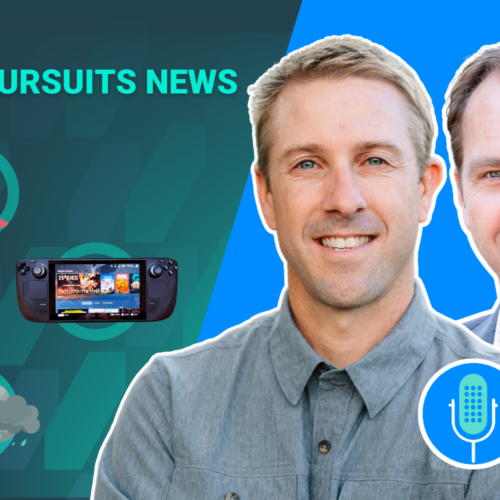

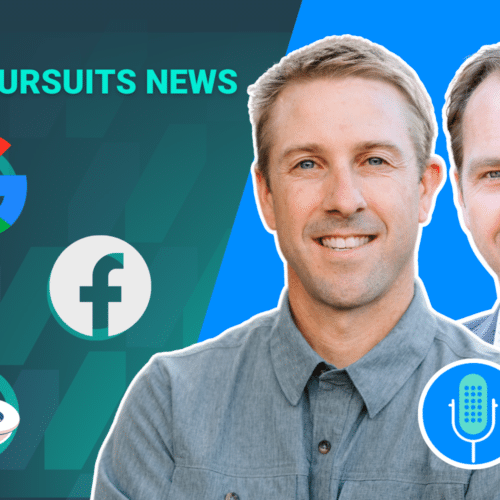







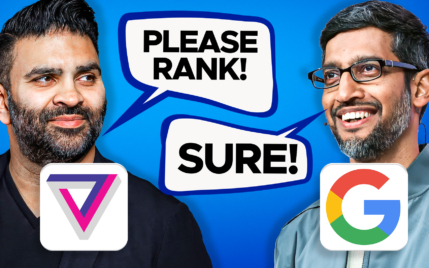
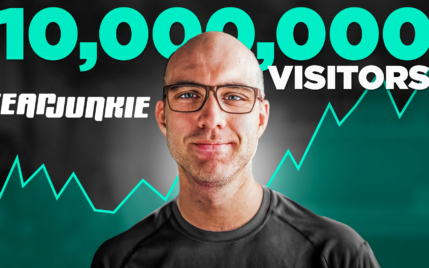


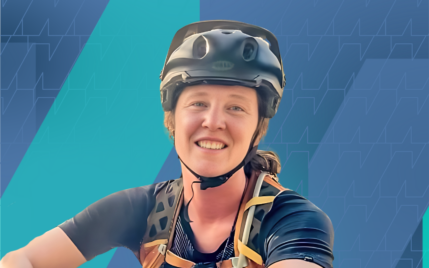

3 Comments
Conversation
Hi Ron,
Good stuff and congratz on the success, growth and expansion, it’s very motivating!
About the database system, what I don’t understand is on everything geo – you compete with google maps and huge aggregators like Yelp etc. So the first 5-8 SERP results are usually Maps and the respective aggregator in that industry.
So, in that case you’re at the bottom of page one if you’re really good.
Do you research a topic where Google Maps and such giants like Yelp aren’t present or what’s your criteria?
Thanks!
Thanks for the comment. Yes, now Adsense has introduced many new strict rules and entertainment. It seems to hard to get Adsense approval. But impossible is nothing.
Hey there, You’ve done an incredible job. I’ll definitely digg it and personally suggest to my friends.
I am sure they will be benefited from this site.